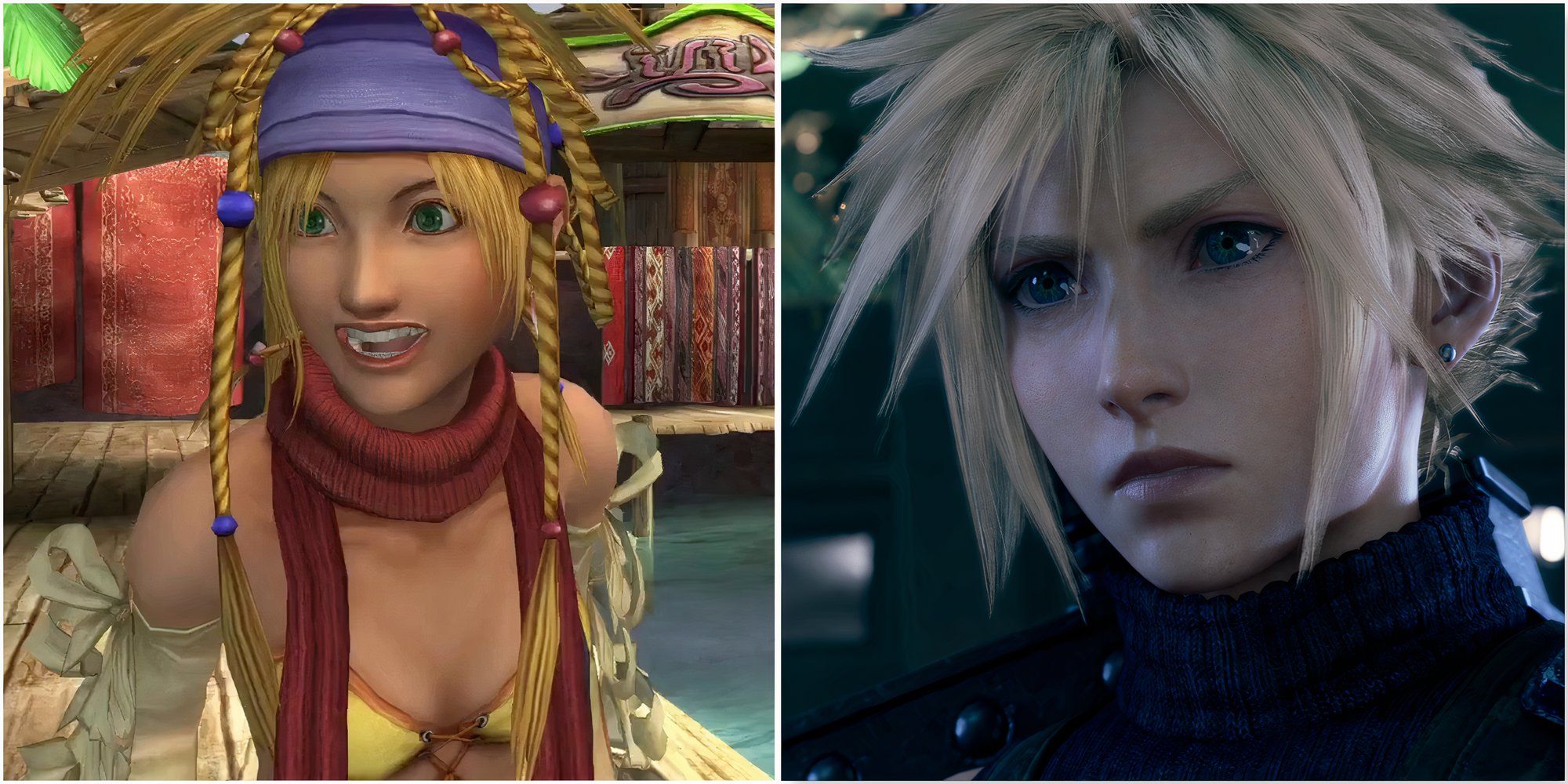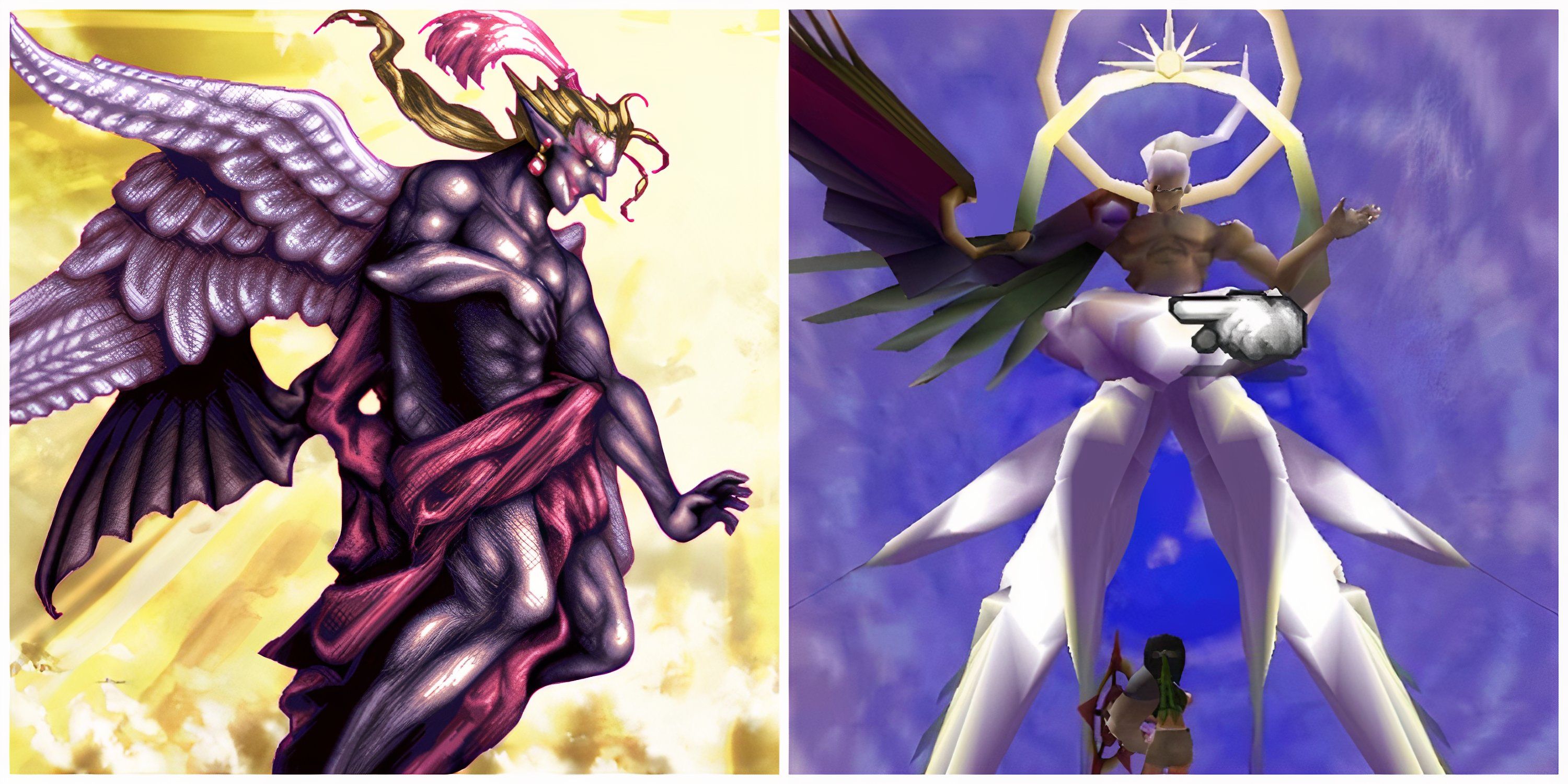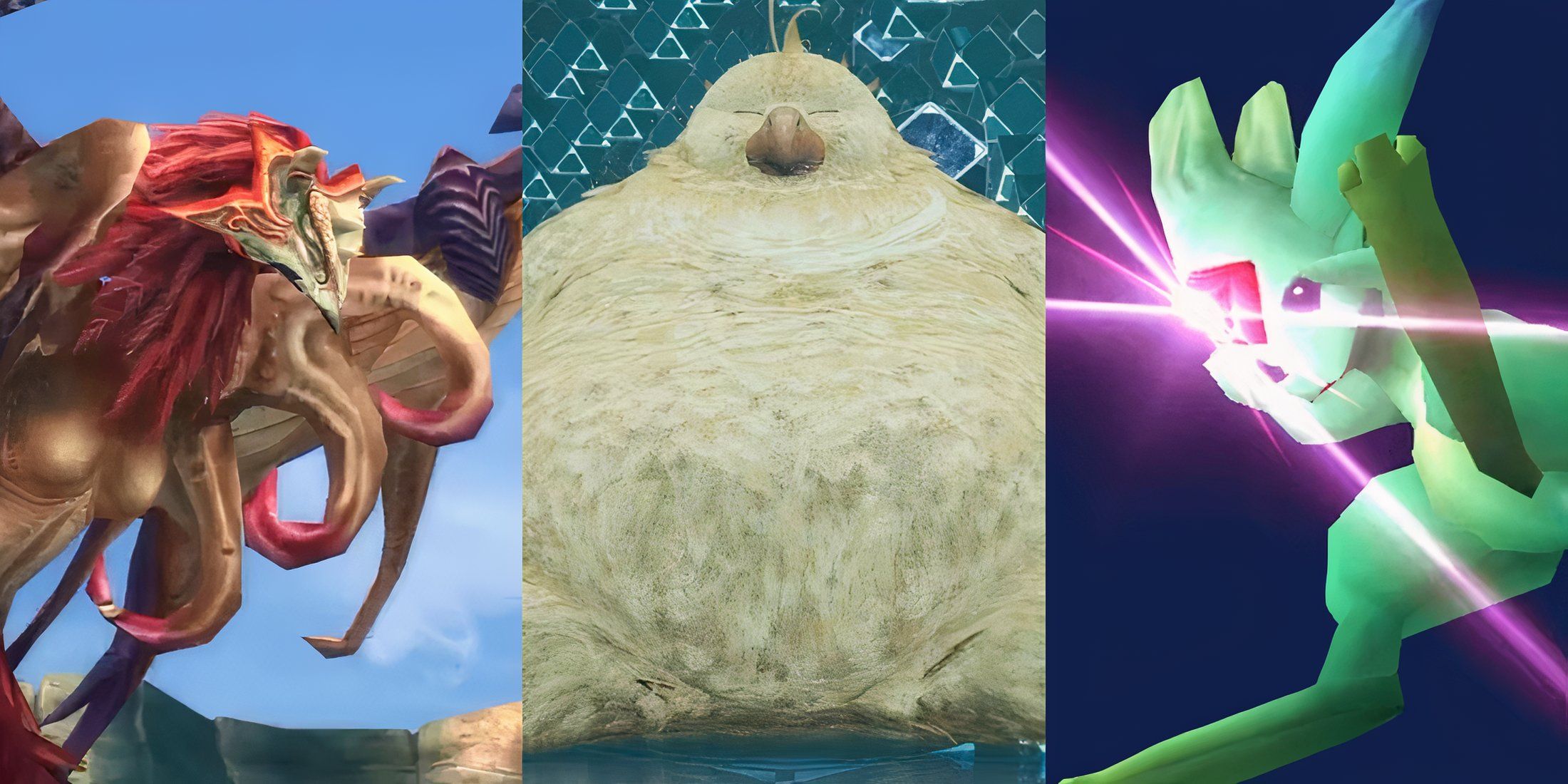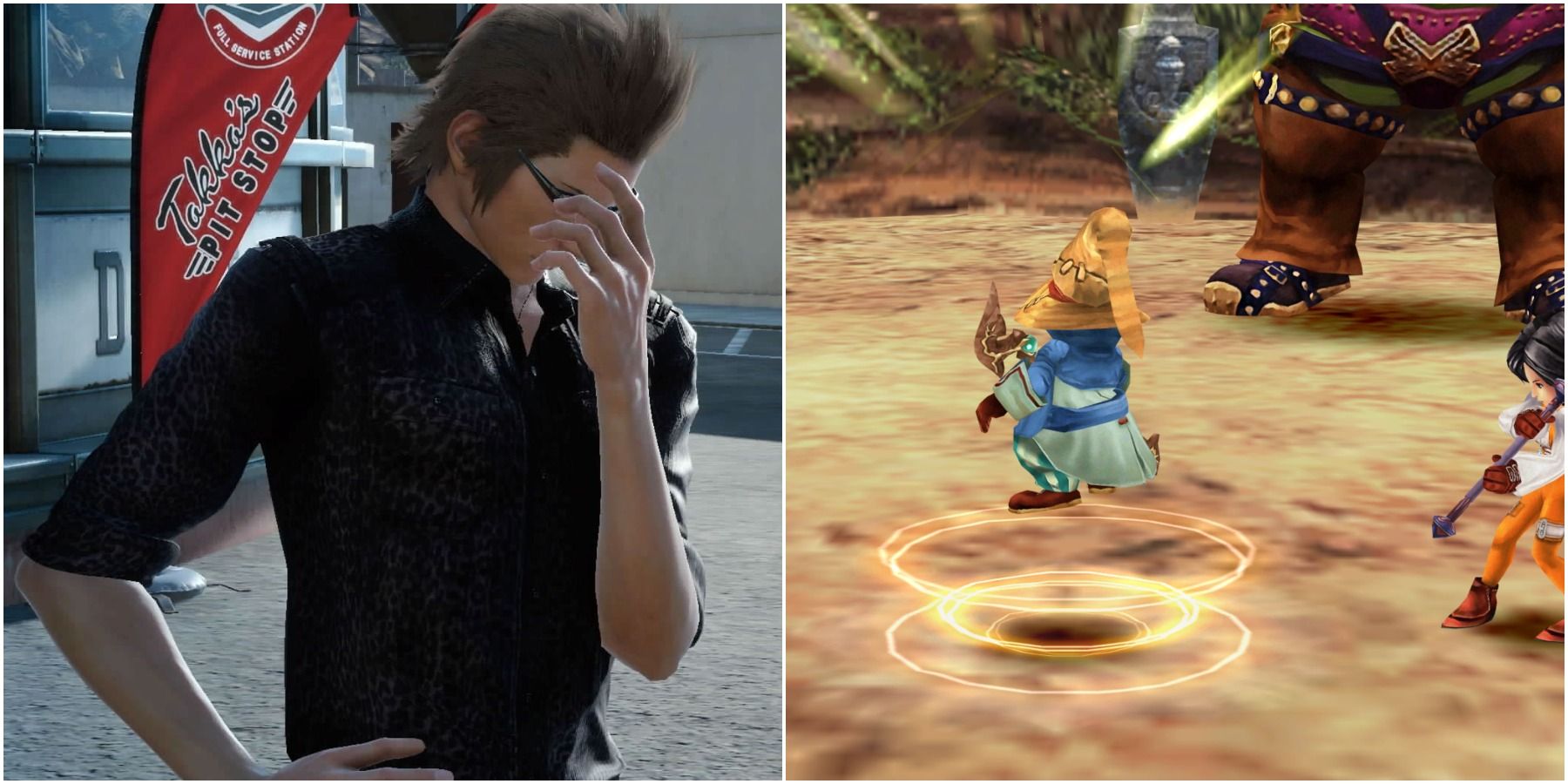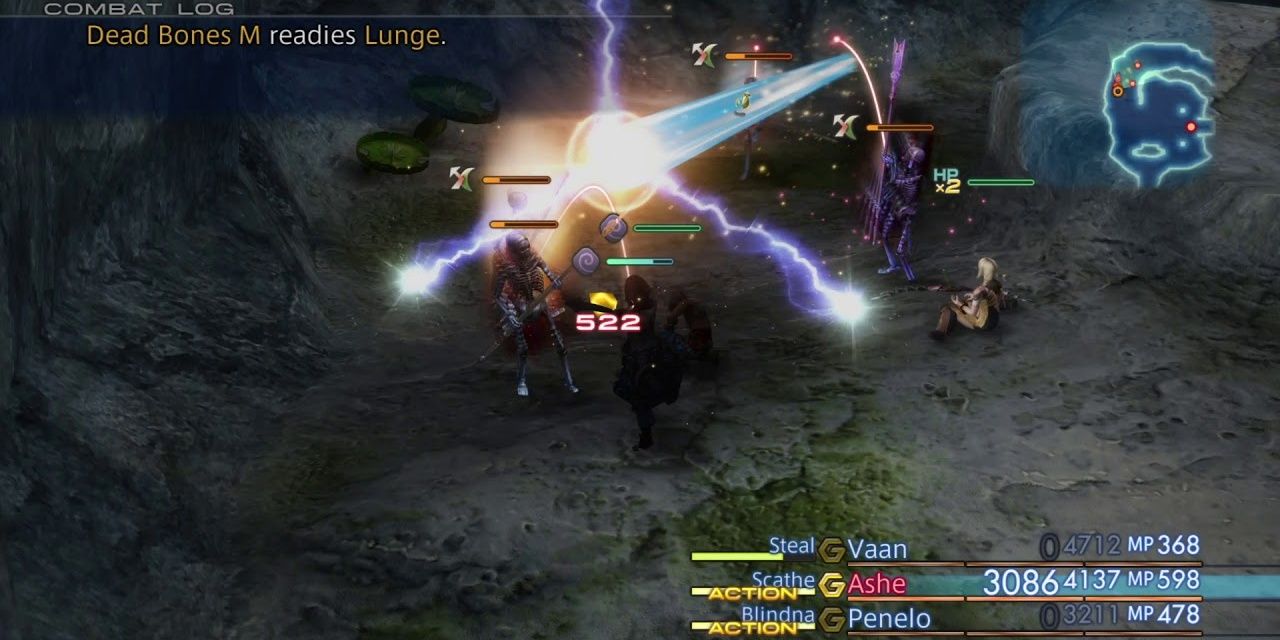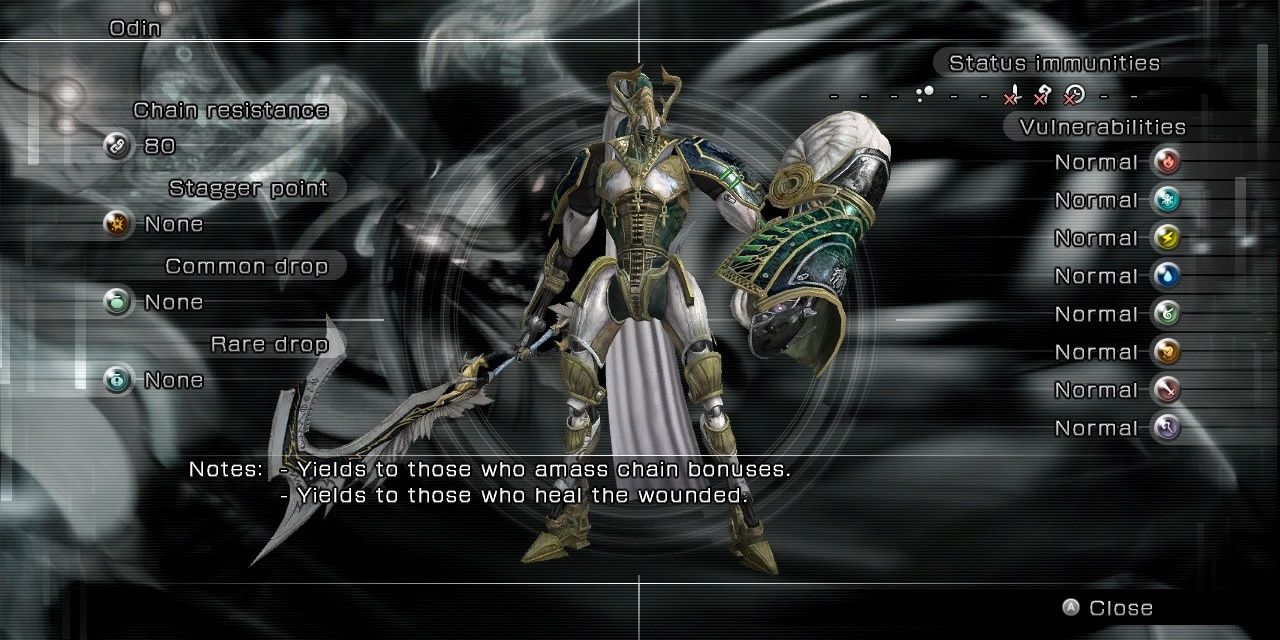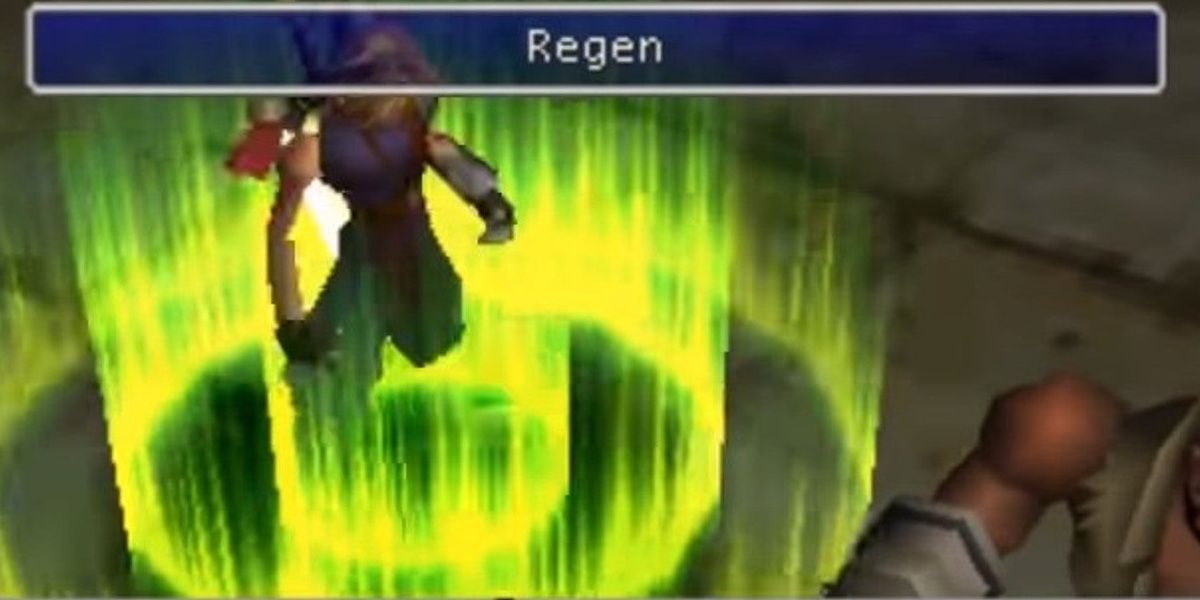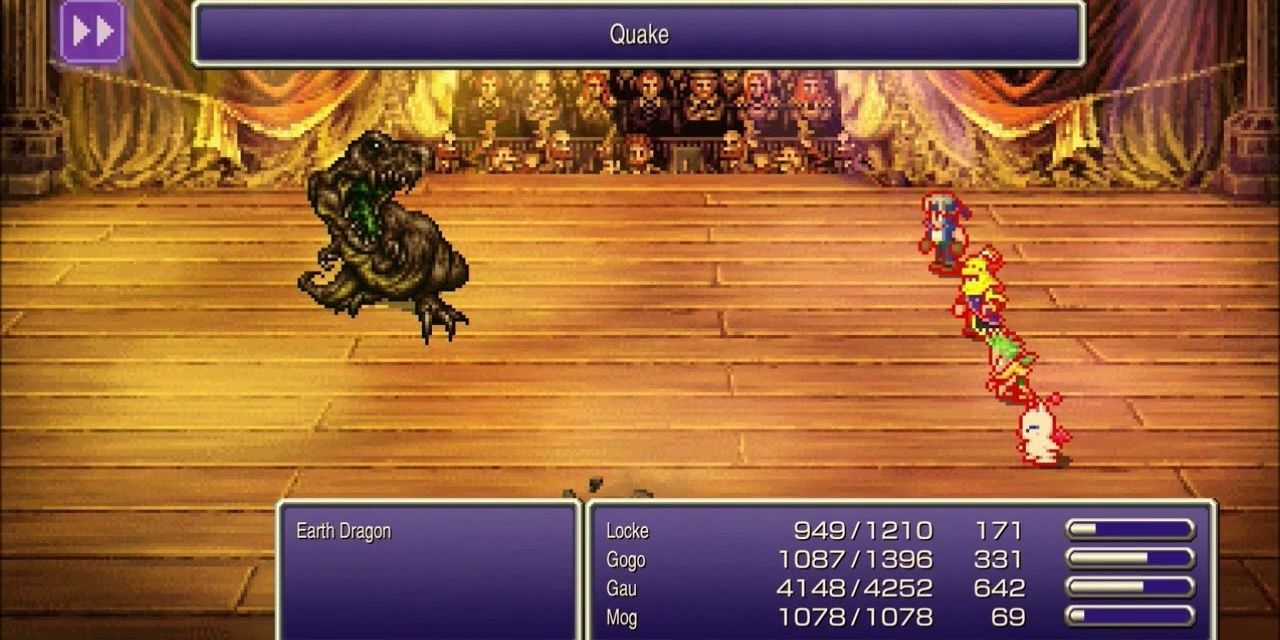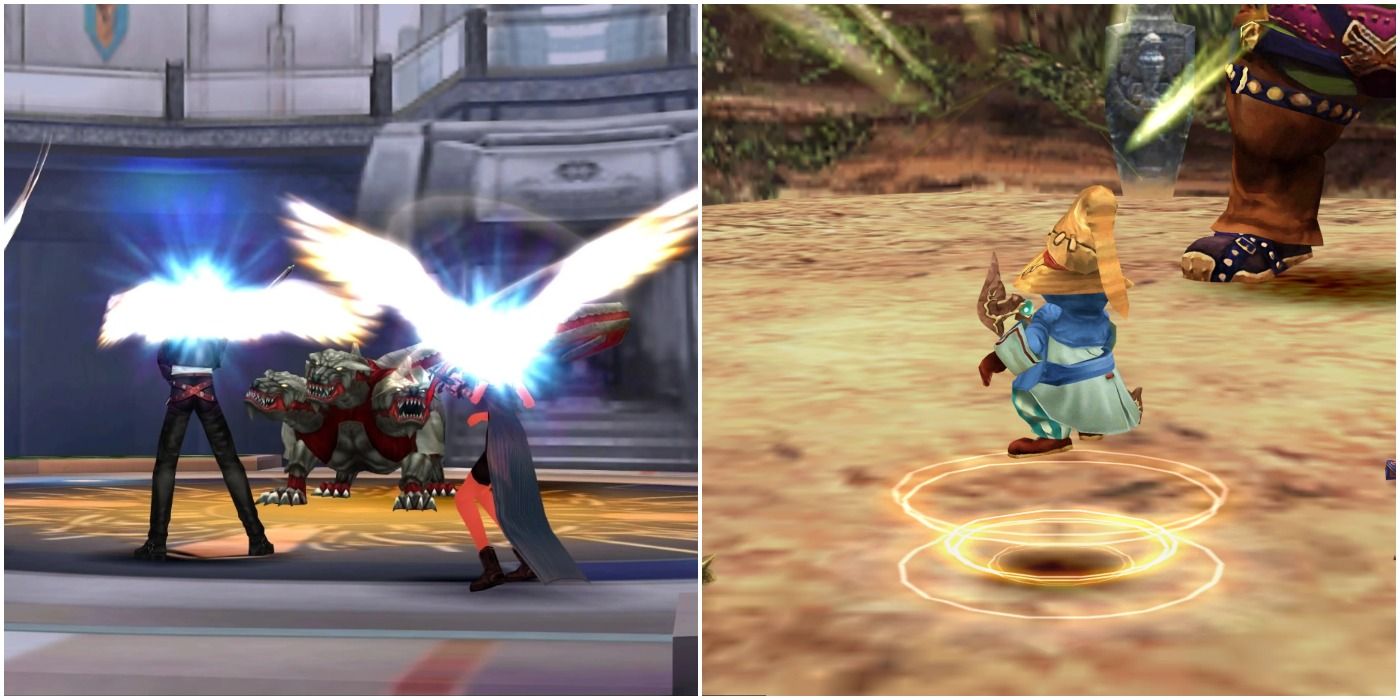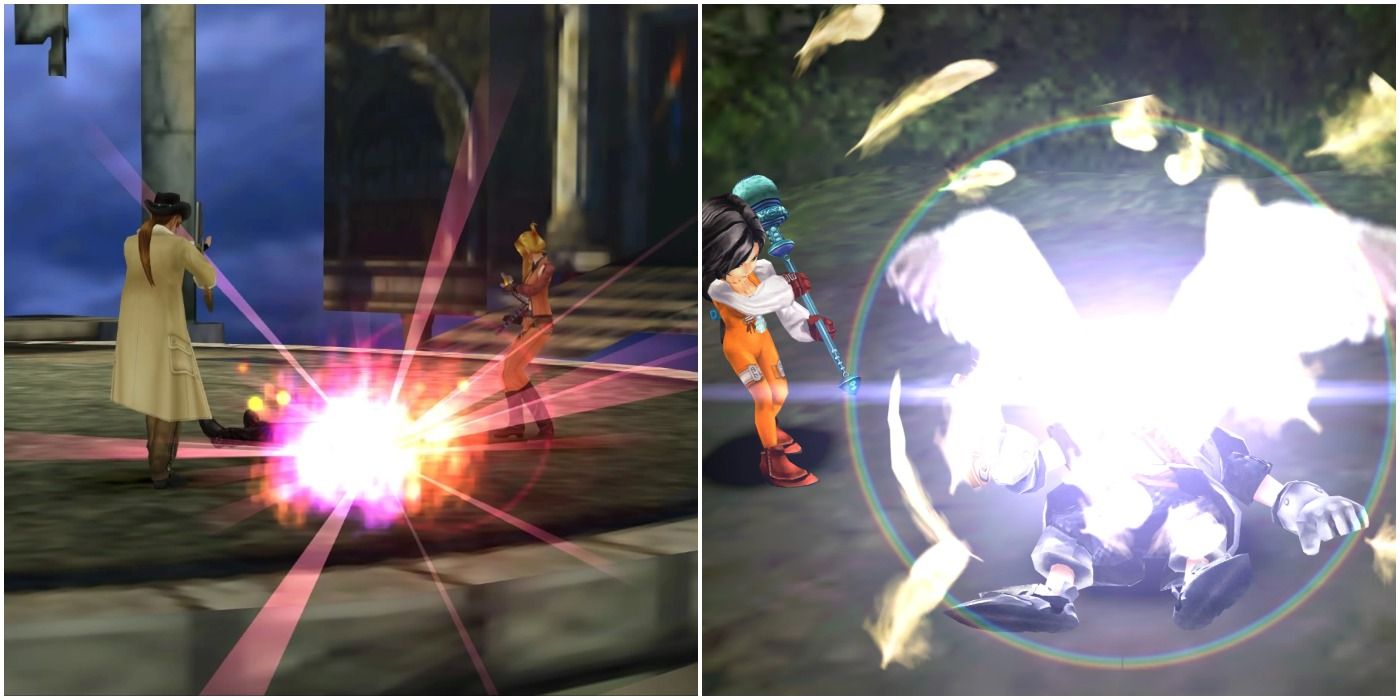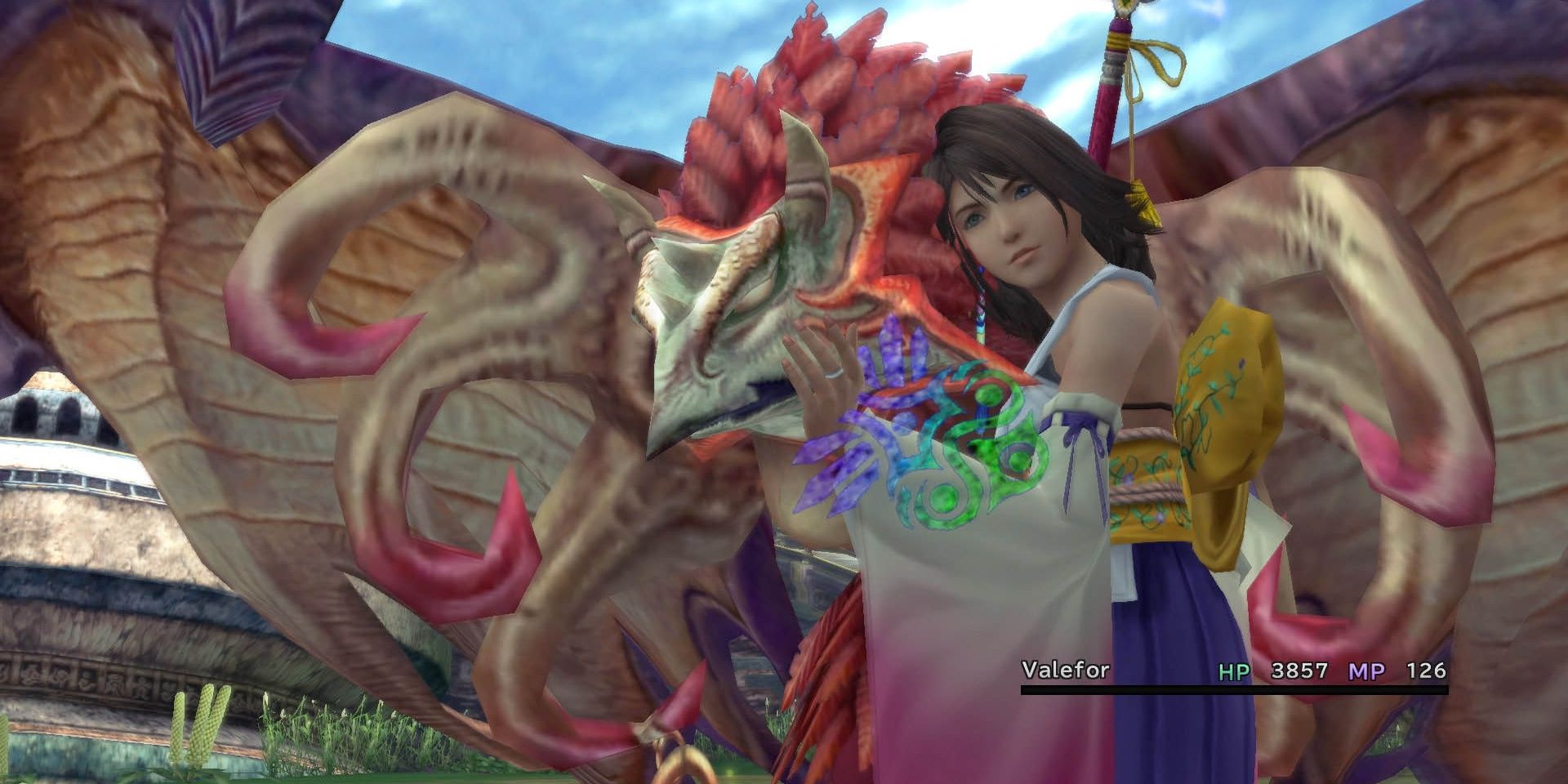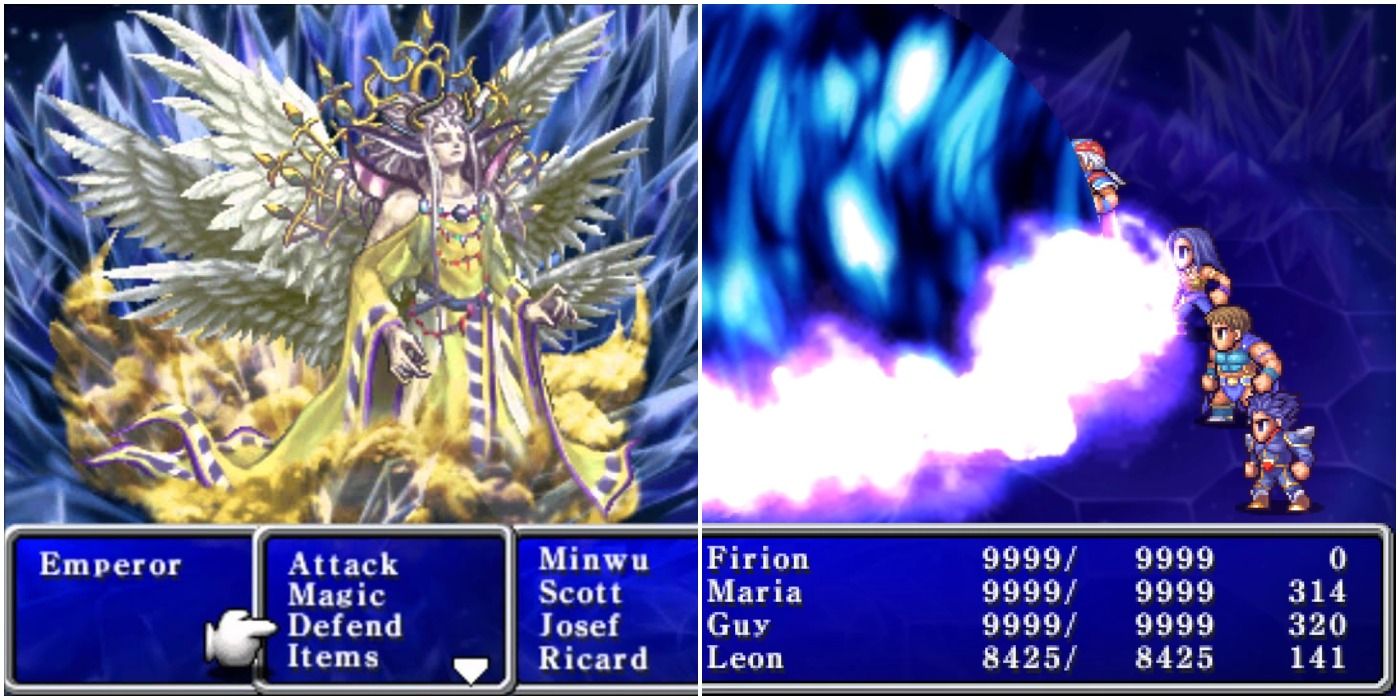As should be obvious by the name, Final Fantasy is a franchise filled with magic. Characters here can wield all manner of elemental spells to obliterate hostile creatures. To conquer the hordes of darkness, players must master this mystical myriad and determine which spells are best suited for each scenario.
That may sound self-explanatory, but Final Fantasy also sports several incantations which just boggle the mind. These spells are not only less useful than their peers, but their very presence seems to only fill space on the command menu. Fans hoping to finish their epic quests had best avoid this magic like the plague. Whatever benefits they might carry are vastly outweighed by the headaches they cause.
8 Reflect
As the name says, this forms a protective barrier that reflects spells back on those who cast them. On the surface, this sounds beneficial. It means enemies can't use magic on the party without harming themselves. Sadly, it's a double-edged sword.
Reflect works on all magic, even curative spells. Players may try to restore a party member's health, but they'll wind up healing enemies instead. It's especially frustrating when those enemies use physical attacks, which their AI seems programmed to do after players use Reflect. Let's hope those players have plenty of potions ready; they won't be using Cure anytime soon.
7 Libra
This spell reveals enemy weaknesses. That seems extremely helpful, and it is...the first time. Final Fantasy titles tend to recycle enemy types over and over. After getting the initial readout on one, players probably won't use Libra ever again. They may not use it at all since most monsters are weak to magic in general. For those that aren't, it's easy to assume their Achilles Heel by just their appearance. For instance, ice-based creatures might just be weak against fire. This makes Libra's uses all the more limited.
The lack of utility only increases in the age of walkthroughs and the internet. In the early days, strategy guides spelled out a monster's stats as plain as day. Now, that info is even easier to access. Players can simply search online for how to defeat a certain enemy. With these answers at one's disposal, why use Libra anymore?
6 Regen
A recurring restorative spell, Regen periodically regenerates the health of its target. Unfortunately, it's only a minute amount. This makes the move tough to rely on.
Players never need it during regular enemy encounters, as these are over before you know it. A spell that works over time is obviously useless during such lightning rounds. The party can regain any lost health afterward with a Tent or other regenerative item. So, Regen mostly comes in during longer battles, right?
Actually, it's even less convenient in these situations. Tougher foes and bosses deal far more damage than the spell recovers. At the end of the day, it's easier to use Cure spells. They may not offer long-term recovery, but their greater potency ensures the heroes stay alive in the moment.
5 Quake
As one can guess, Quake is easily among the more powerful offensive spells. It brings forth a massive earthquake, dealing elemental damage to everyone in the area. Unfortunately, that also includes your party.
Yes, most Final Fantasy entries see Quake deal just as much pain to the heroes as it does to enemies. If players aren't careful, they could easily kill their entire team in one fell swoop. This is simply not an enticing option, especially with the presence of other high-tier spells. Not only are these more damaging, but the only thing that players lose is MP. Granted, there is a workaround (as seen in the following entry), but it's not worth the hassle.
4 Float
Here's another on-the-nose name. Float suspends characters in the air. Since they're not touching the ground, they're immune to earth-based attacks. That's it.
The spell only has that single use, and it's a highly situational use at that. There's no guarantee that enemies will use earth attacks. What's more, is that the Float status doesn't provide any noticeable stat improvements; its only apparent purpose is to ensure the party can use Quake without hurting themselves. Who wants to do these extra steps for one attack spell? Both that and its accompanying Float are far more trouble than they're worth.
3 Raise
Bringing a party member back to life sounds like the jackpot. Sadly, the characters don't have much health after their resurrection. Unless they get an additional healing spell right away, enemies will just knock them down again. Thus, a huge chunk of MP goes down the drain.
Players are better off buying a Phoenix Down. It has the same effect--bringing party members back with minimal health--but at least it doesn't cost any MP. All it needs is a little cash, which these games always award in ample supply.
If players want to bring their characters back with magic, they'd best hold off for more powerful restorative spells. Specifically, they should attain Arise and/or Full-Life. Both of these make for stronger solutions than their predecessor's patchwork.
2 Summons
Most Summon creatures boast an impressive presentation, leading many to believe they can single-handedly turn the tide of battle. That's rarely the case. Summons really have a mixed track record throughout the series.
Most of these monsters deal decent damage early on, but players soon outgrow them. High-level magic and other special attacks create comparable or even greater devastation. Pitiful in itself, it becomes even more so when you discover that Summons cost more MP than standard magic. In short, they demand more sacrifice for less reward. These drawbacks make Summoning both counterintuitive and counterproductive.
1 Destroy
Exclusive to Final Fantasy 2, this is Quake on steroids. Instead of earth, it's scorched earth. Destroy unleashes a massive blast that deals 9999 damage points to everyone onscreen. By the end, only the caster is alive, albeit barely. He or she only has 1 HP and 0 MP. Players truly gamble everything with this move.
In all fairness, that gamble usually pays off. This was before the series got crazy with tens of thousands of health points. Few foes have more than 10,000 HP, but some still exist. The final boss, for instance, need only flick the last hero away like a bug. Even when the spell works, it leaves players to pick up the pieces after every battle.
They must constantly resurrect their party members, requiring more healing items than ever before. Thankfully, Destroy has been eliminated from the series. Its only mainline appearance was in Final Fantasy 2, specifically the 20th Anniversary PSP release. The developers must have learned that such a cataclysmic spell did more harm than good.

